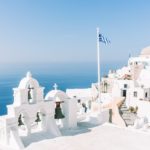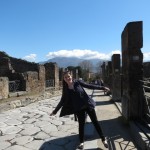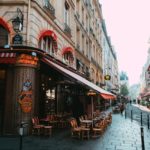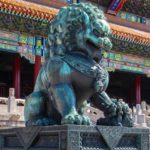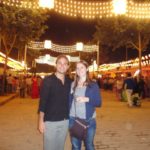A Trip To Israel Turned My Views Upside Down
On May 16, I was on my way to meet 38 other individuals who I’d be spending 10 days in Israel with. I was about to go on Birthright Israel, or Taglit: a free, 10-day trip to Israel I’d been looking forward to since my Bat Mitzvah. All I knew about Israel was what I’d heard from people and learned in Hebrew school—you’ll feel something special there, like you’re at home. I was also flooded with people telling me to be alert at all times, which is important when traveling anywhere unfamiliar.
The first place we stayed was a Kibbutz near the Sea of Galilee. Kibbutzim are unique in that the entire community works together to help one another. I’d never heard of anything like it in the States, so I was intrigued. I ate my first of many falafel, and I could not wait to begin our journey early the next morning.
Visiting an ancient synagogue and learning about Kabbalah, or Jewish mysticism, in the city of Tzfat, opened my eyes to the rich history in Israel. I knew how much had gone on there years ago, but to be in the midst of it was something else. Our tour guide Ori told us about a woman who sat on her steps every morning waiting for the Messiah with a cup of coffee and a cup of tea. Why both? She didn’t know which he’d prefer.
After a cruise on the Sea of Galilee, with lots of dancing, and a night out in Tiberias, with even more dancing, I wandered around the Kibbutz with my new friends. It was my first day in a new country, with people I just met, but I felt oddly calm.
The next day we were meeting our Israeli soldiers, arguably the best part of Birthright. I knew Israel had a draft, but it didn’t register to me what that meant. Once you turn 18, that’s it. You join the army. No questions asked. I thought about how different it is in the U.S. We go off to college, travel or join the workforce. Girls my age were suiting up and some were carrying rifles. It’s something difficult to grasp.
I was extremely excited to see the city I’d heard so much about and even wrote a wish for peace to put in the Western Wall. But when we got there, it was a lot different than I thought. There is a 25 foot wall in the middle of the city dividing the Old City from the West Bank. I knew there were political problems, but not to this extent.
The Israelis who joined our bus (#Bus171, shoutout to you all) were incredible. They were some of the most easygoing, friendly people I had ever met and they were thrilled to be taking a few days off from their normal, demanding lives to join our trip. We traveled with them to Mount Bental and saw the borders of Israel. While looking off into Syria, we heard multiple bombs. I was in shock.
The following day we were in Jerusalem. I was extremely excited to see the city I’d heard so much about and even wrote a wish for peace to put in the Western Wall. But when we got there, it was a lot different than I thought. There is a 25 foot wall in the middle of the city dividing the Old City from the West Bank. I knew there were political problems, but not to this extent. I felt sadness, confusion and even fear.
When we got to the Western Wall, I felt ostracized. Women had to put on long skirts and shawls and were confined to a smaller part of the wall. This angered me, and I felt unwelcome. While others felt sadness, or joy, I felt confusion. A young girl sobbed up against the wall next to me. I placed my note inside and I walked away.
Celebrating Shabbat with our new Israeli friends was a great experience. They were surprised how joyous our service was and how everyone, even the women, were singing. We had a relaxing Saturday visiting the Israel Museum and laying by the pool. I enjoyed Jerusalem much better at night where we ate, shopped and smoked hookah.
Israel’s people, markets and nightlife make it a unique country I’d love to return to. Its political and social problems make it a country I can only hope finds peace one day soon.
The next day, we visited the national military cemetery of Israel. It was extremely touching to hear stories of people’s friends and family, and I realized on a deeper level how difficult it is to live in this country.
Our next 72 hours were spent riding camels in the desert, hearing about the Bedouin lifestyle, climbing Masada and swimming in the Dead Sea. I loved learning about the simplicity of the Bedouins and how they welcome anyone into their homes.
We had to say goodbye to our Israelis, and the bus didn’t feel the same. It was quieter and less energetic, but we all hope to travel back to Israel to see them again.
The next day, we visited a senior residence to sing to the elderly residents and play games with them. Many of the residents were unable to move or speak, which broke my heart. Just bringing a simple smile to their faces was very rewarding. We spent the rest of the day in Tel Aviv at a big cultural event for Birthright. I felt an instant connection to the lively energy of the city and immediately could picture myself living there.
Yad Vashem, Israel’s museum and memorial to the Holocaust, was touching. I had learned about the Holocaust and visited a Holocaust museum before, but being in the Jewish people’s homeland made it different and more meaningful.
Israel’s people, markets and nightlife make it a unique country I’d love to return to. Its political and social problems make it a country I can only hope finds peace one day soon. If the beauty in the land and the people’s hearts can make it into its issues, I know this is possible.

